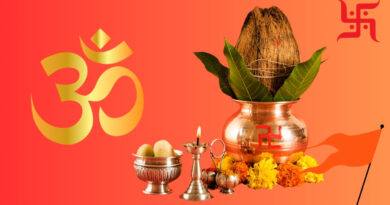The Practice Of Rituals Can Empower Mind And Behaviour: Powerful
Let’s delve into the psychological mechanisms behind rituals, examining how they can influence our thoughts, emotions, and behaviours in both subtle and transformative ways. What exactly are rituals? Rituals are repetitive and structured behaviours or actions that hold symbolic meaning and are often carried out in specific contexts.
Engaging in rituals can create a predictable structure in one`s life, reducing uncertainty and anxiety. Rituals can serve as coping mechanisms, allowing individuals to manage their emotional states. Engaging in rituals can elicit positive emotions and create a sense of emotional balance.
Social Bonding and Identity: Rituals play a significant role in creating and reinforcing social bonds. Group rituals, such as religious ceremonies or cultural celebrations, foster a sense of belonging and community. They help shape personal and collective identities by aligning individuals with shared values and practices. They help individuals navigate significant life events like birth, death, and marriage, providing a framework for processing emotions, adapting to new roles, and finding meaning.
Personal rituals can be intentionally designed to align with specific goals or values, providing a source of motivation and commitment. Whether in personal routines or cultural traditions, rituals offer insights into the complex interplay between psychology, culture, and behavior. Overall, the psychology of rituals highlights how these practices serve as powerful tools for individuals and societies to manage emotions, create meaning, build connections, and navigate life’s challenges.
Rituals and Identity: Rituals play a fundamental role in forming and expressing both individual and group identities, contributing to a sense of belonging and reinforcing shared values in various cultural, religious, and social contexts. These rituals help shape perceptions of self and community by providing a framework for how individuals relate to one another and the world around them.
Cultural Significance and Identity Formation: Cultural rituals are a means of transmitting traditions and values from one generation to the next. These rituals serve as a tangible connection to the past, preserving cultural heritage and identity. Cultural rituals help individuals identify themselves within a larger cultural group. Engaging in rituals specific to their cultural background fosters a sense of pride and belonging. They can unify diverse communities by providing a common ground for celebration, mourning, and other shared experiences.
Religious Context and Identity Expression: Religious rituals are often centred around the worship of deities or higher powers. These rituals help individuals feel spiritually connected and provide a sense of purpose and meaning in life. Religious rituals often involve practices that align with specific moral and ethical values. Engaging in these rituals reinforces an individual’s commitment to these values and their religious identity.
Religious rituals create a sense of belonging to a religious community. They communicate an individual’s changing role within a group and reinforce their sense of identity within that group.
Reinforcing Norms: Social rituals often involve adhering to group norms and expectations. By participating in these rituals, individuals demonstrate their commitment to the group’s values and behaviours.
Shared Values and Bonding: Participating in rituals creates shared experiences among individuals.
Reinforcing Values: Rituals often involve symbolic actions that represent shared values. By engaging in these actions collectively, participants reinforce their commitment to these values.
Creating Personalised Rituals:
Developing meaningful rituals can greatly enhance personal growth, productivity, and overall well-being. By intentionally incorporating rituals into daily life, individuals can create structure, focus, and a sense of purpose. Here are some tips to help you develop your own meaningful rituals:
- Identify Your Intentions:
Reflect on your goals and intentions. What areas of your life do you want to improve or focus on? Determine whether you want to create rituals for personal growth, work, relaxation, or other specific purposes.
- Start Small:
Begin with simple rituals that can be easily integrated into your routine. Over time, you can expand and customise them based on your needs.
- Consistency Matters:
Consistency is key to the effectiveness of rituals. Choose a specific time and frequency for your ritual that aligns with your daily schedule.
- Create a Meaningful Space:
Designate a physical or mental space where you can engage in your ritual. This space should evoke a sense of calm and focus.
- Personalise Your Ritual:
Tailor your ritual to resonate with your preferences and values. Incorporate elements that hold personal significance.
- Mindfulness and Presence:
Practice mindfulness during your ritual by being fully present in the moment. This enhances the emotional and psychological benefits of the ritual.
- Combine Rituals with Goals:
Align your rituals with your goals to create a sense of purpose. For example, if your goal is to read more, create a daily reading ritual.
- Experiment and Adjust:
Don’t be afraid to experiment with different rituals until you find what works best for you. Adjust and refine your rituals based on your experiences.
- Morning and Evening Rituals:
Develop morning rituals to set a positive tone for the day. Evening rituals can help unwind and reflect on the day’s events.
- Incorporate Mind-Body Practices:
Consider rituals that incorporate mindfulness, meditation, deep breathing, or stretching to promote mental and physical well-being.
- Practice Gratitude:
Incorporate gratitude rituals, such as journaling or reflecting on positive aspects of your day, to foster a positive outlook.
- Digital Detox Rituals:
Create rituals that help you disconnect from technology and foster genuine connections, both with yourself and others.
- Experiment with Creative Rituals:
Engage in creative rituals, such as drawing, writing, or playing a musical instrument, to tap into your creative potential.
- Reflect and Adjust:
Regularly assess the impact of your rituals. Are they helping you achieve your goals and enhance your well-being? Adjust as needed.
- Be Patient:
Rome wasn’t built in a day, and the benefits of rituals might not be immediately apparent. Give yourself time to experience the positive effects.
By developing meaningful rituals, individuals can harness the power of repetition, mindfulness, and intention to create positive changes in their lives. These rituals can serve as anchors, providing structure, motivation, and a sense of purpose that contribute to personal growth, increased productivity, and enhanced overall well-being.





Keep your mind to be positive and be thankful for the things he has been created in the world.
Very nice article. Such Rituals are a must for our society.